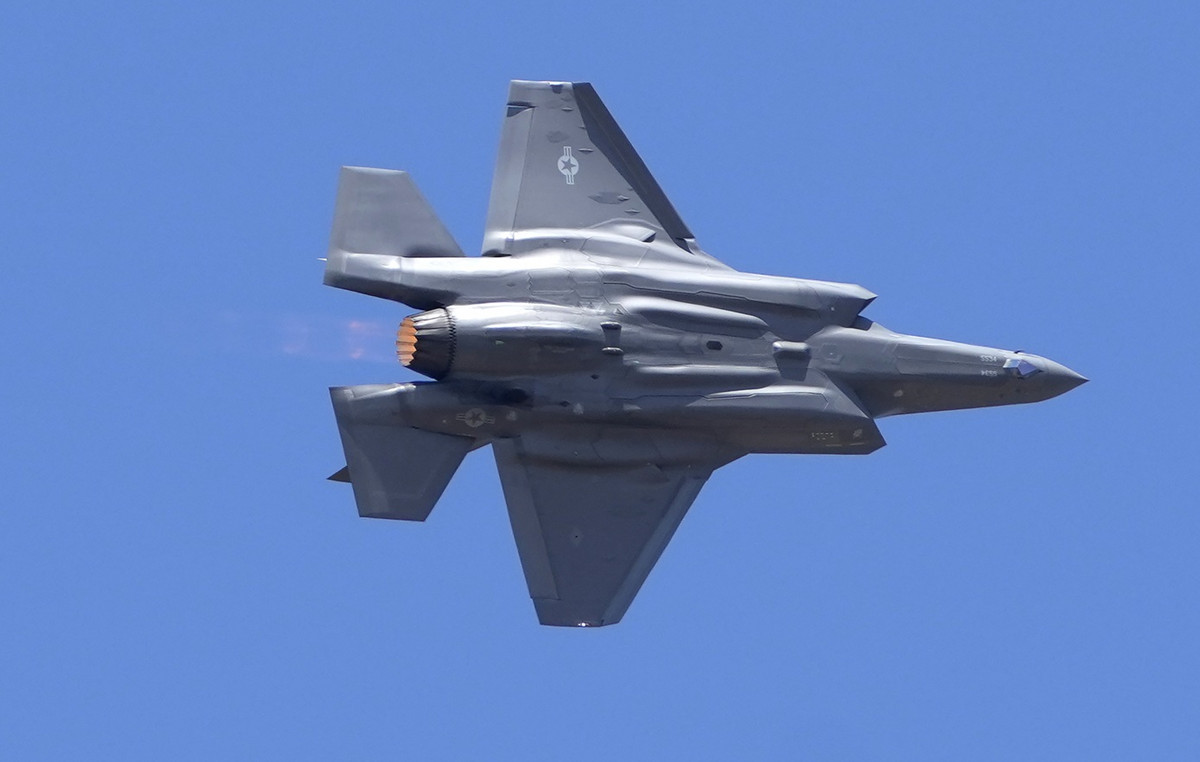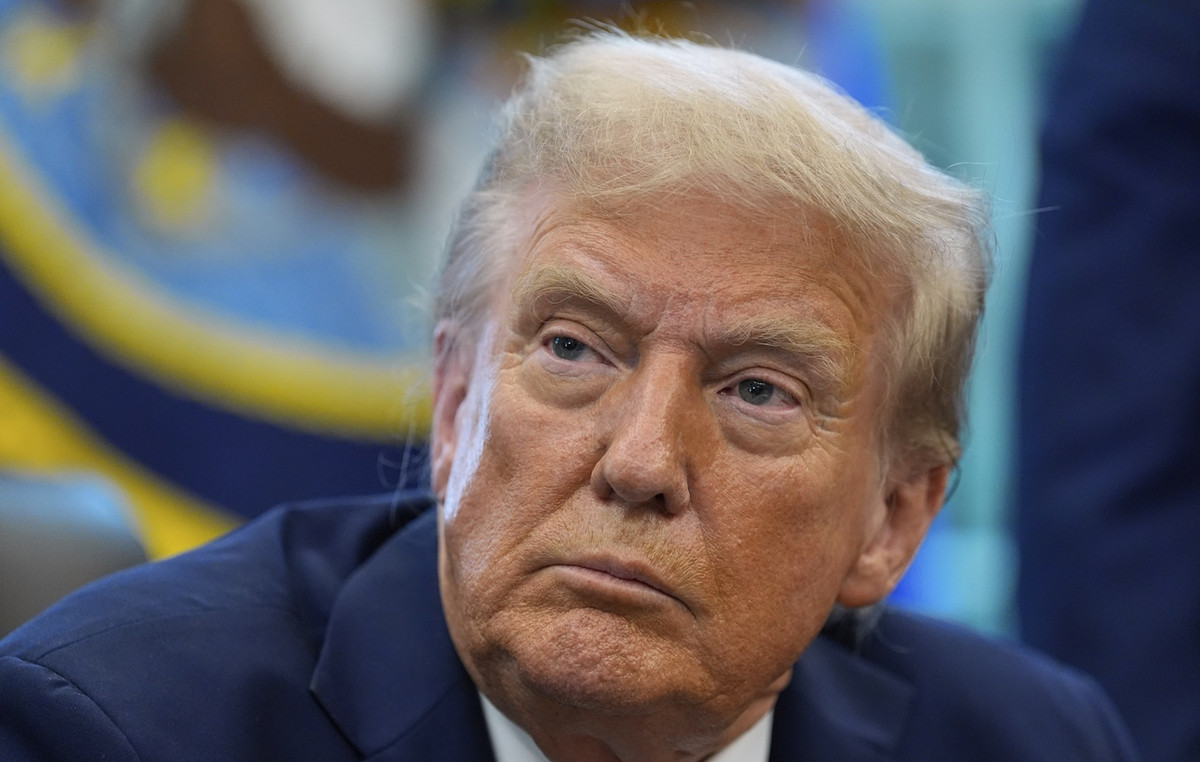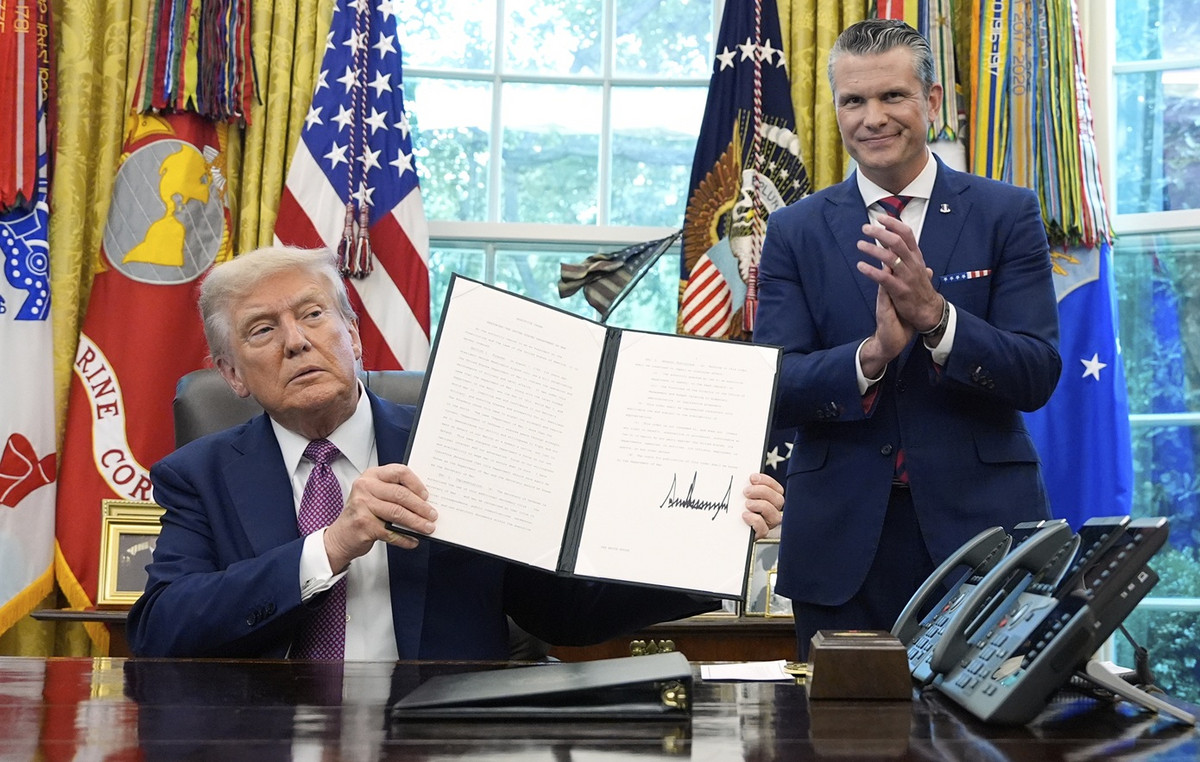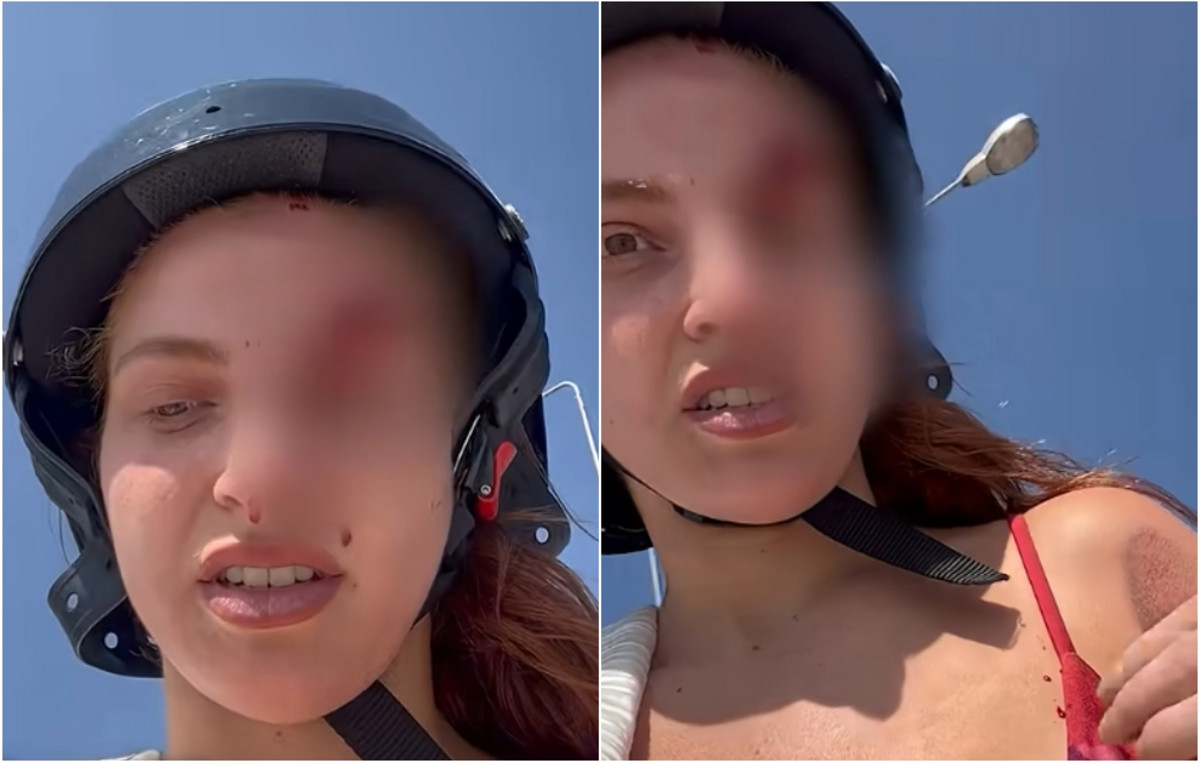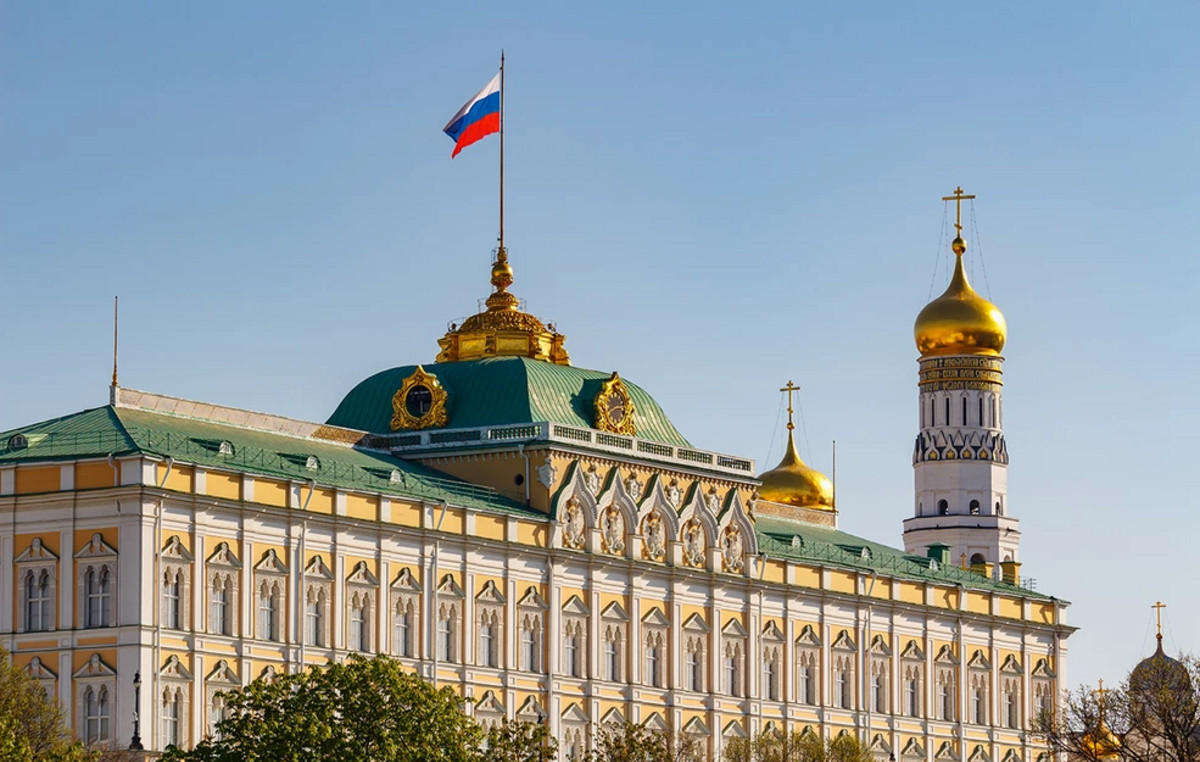Candidate María Corina Machado (VV) intends to remove Nicolás Maduro (PSUV) from power through the Venezuelan elections and considers that she has a great opportunity to achieve this objective.
Machado was the winner of the Venezuelan opposition’s primary elections and could face Maduro and other independent candidates in the presidential elections that will take place in 2024.
However, due to a ban that prevents her from holding public office — imposed by the Maduro government — her participation in the election is still uncertain.
In an interview with the Conclusiones program, from CNN in Spanish the former deputy said that Sunday’s elections (22) were “the beginning of the end and an indispensable and necessary step to be able to definitively defeat the system”.
However, she highlighted that this path has many obstacles and that she cannot travel it alone. “This is a work and a cause shared by thousands of Venezuelans inside and outside the country”, she highlighted.
“In this country, after years of hunger, pain and separation, we are determined to do what must be done and that is exactly what will happen. We will break down the barriers, I will run for office and defeat Nicolás Maduro, so we can start rebuilding our country,” he assured.
Machado, 56, leader of the Vamos Venezuela party – which she founded in 2012 – received the highest number of votes in the opposition primary elections held on Sunday. She obtained 2,253,825 votes (92.35% of the total), with 92.65% of the votes counted, as reported by the National Primary Commission in its latest bulletin.
Regarding the electoral process, Machado said that it is necessary to be very involved in the entire conflict lasting so many decades in Venezuela to understand the depth and magnitude of what is happening in her country.
“This is a fight that goes far beyond a conventional election. For Venezuelans, this has really become an existential and even spiritual struggle, which is why you see people come out, hug each other, cry, pray and sing.”
This is the first time in more than a decade that the opposition coalition has organized a primary vote to choose a single candidate.
His victory also represented a turnaround in the opposition: he surpassed the pre-candidates of the so-called G-4, the parties Acción Democrática, Primero Justicia, Voluntad Popular and Un Nuevo Tiempo, which had the majority of deputies elected in the elections to the National Assembly for the period 2016-2021.
“It was a historic feat. The most important thing was how we, Venezuelans, became aware of what we were doing, in a civic event that the people led and that united us, because a quarter of our country is on the edge of the entire world and that day we left as a family, and we feel united in a common project. This is extraordinary,” said Machado.
Regarding the number of votes he obtained, he admitted that “it is something truly monumental, they doubled my best expectations”. “For me it is a turning point in the civic and democratic history of Venezuela”, she summarized.
After the primaries and the publication of the results, Attorney General Tarek William Saab announced that he will open a criminal investigation against the president and vice-president of the National Primary Commission for usurpation of identity, electoral functions and association to commit a crime. .
Regarding the Public Ministry’s measure, Machado highlighted that “this is not against Jesús María Casal and Dr. Mildred Camero or the other members of the National Primary Commission”. “This goes against millions of Venezuelans who carried out this process impeccably, as elections in Venezuela should be.”
After his victory in the primaries, Machado said he will not rest and that his purpose is to begin the reconstruction of Venezuela.
Disqualification from holding public office
His campaign slogan, “Until the end”, takes on special meaning if we consider a document from the Comptroller General of the Republic that established Machado’s disqualification from holding public office in Venezuela for 15 years due to “errors and omissions in his sworn statements” about patrimony.
The sanction prevented her from registering her candidacy with the Venezuelan National Electoral Council.
Throughout the year, Machado rejected these accusations several times and said they were maneuvers by the “regime”, describing the measure against her as “garbage”. “The people of Venezuela are the ones who allow this,” she said in her campaign.
During his interview with CNN , Machado also highlighted that “trying to disqualify me was the worst mistake the regime could have made”. “It was reversed because it gave it a dimension of challenge, a challenge that caused many more people to vote on Sunday.”
“Talking about disqualification at this moment is trying to ignore Sunday’s monumental political event. Now that we have to unite an entire country, I am focused on ensuring that a great national agreement reaches the heart and home of every Venezuelan, especially those who are still under some control or intimidation by Chavismo”, he concluded.
Legal experts, such as the non-governmental organization Acceso Público, describe the government measure as illegal and unconstitutional.
For years, Machado faced accusations and sanctions from authorities. In 2014, as a deputy to the National Assembly, she called for a wave of protests known as “The Exit”, which lasted until June and whose objective was to demand the restitution of the democratic order in Venezuela.
Later, Machado briefly accepted the position of alternate ambassador of Panama to the Organization of American States (OAS) to denounce to the Permanent Council the deaths of dozens of young people and the human rights violations allegedly committed during these street actions.
In response, the ruling party issued measures to secure her dismissal as a member of the National Assembly, accusing her of treason and, later, of assassination plots, without presenting evidence. Machado has repeatedly and publicly denied such accusations.
A court banned her from leaving the country in the middle of this investigation and she has already enjoyed this precautionary measure for eight years.
Could the Barbados agreement benefit her?
During the month of October, the opposition and Maduro’s government signed an agreement in Barbados that suspends economic sanctions on Venezuela imposed by Washington for six months – which would allow the government to resume selling oil in the United States – in exchange for respect for political rights of their opponents.
The agreement says that candidates will be able to register “as long as they meet the requirements established to participate in the presidential elections”.
Following the signing of the partial Barbados pact, US Secretary of State Antony Blinken said in a statement that he hopes that before the end of November the Maduro government will define a precise process and deadline “for the expedited readmission of all candidates ”.
“The United States plans to take action if the commitments stipulated in the election roadmap are not met,” the statement said.
What does María Corina Machado propose?
In this campaign, Machado is betting on promoting fiscal and monetary stabilization in Venezuela and says he will seek the privatization of public companies, including oil activity.
The VV is a party with a liberal economic doctrine that proposes an option contrary to socialism under the premises of the free market, as well as respect for private property and the rule of law.
Source: CNN Brasil
Bruce Belcher is a seasoned author with over 5 years of experience in world news. He writes for online news websites and provides in-depth analysis on the world stock market. Bruce is known for his insightful perspectives and commitment to keeping the public informed.

